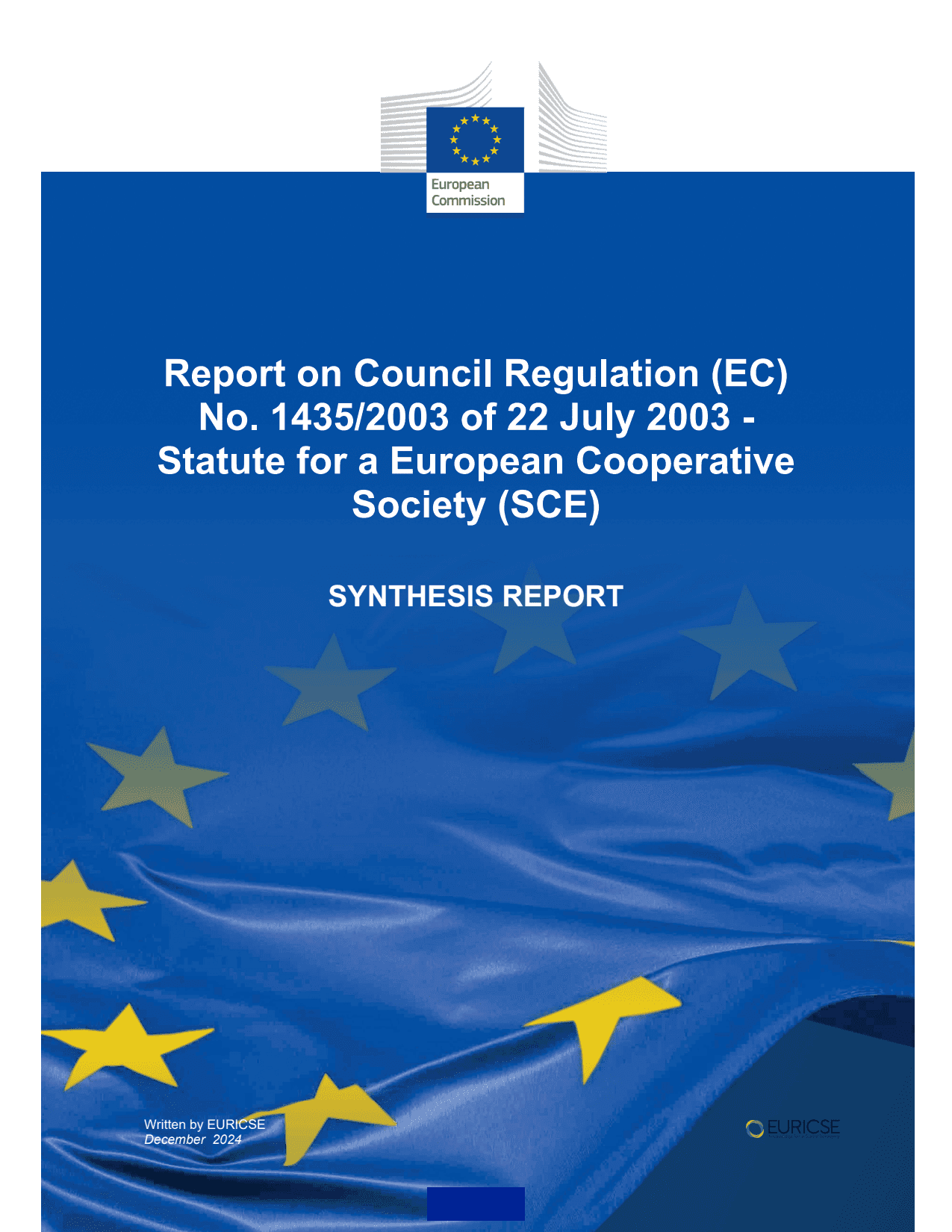AI-Generated Summary
Context of the Report
The report titled "Summary of the Synthesis Report on the European Cooperative Society (SCE) Regulation" was published by the European Commission in December 2024. It is authored by Antonio Fici, Gianluca Salvatori, and Barbara Franchini from EURICSE, an organization focused on research in the social economy. This synthesis report evaluates the impact of Council Regulation (EC) No. 1435/2003 on the establishment of the European Cooperative Society (SCE) two decades after its adoption, emphasizing its significance in promoting cooperative values across EU member states.
Overview of the SCE Regulation
Council Regulation (EC) No. 1435/2003 established the SCE as a legal framework for cross-border cooperatives within EU/EEA member states. The regulation mandates that SCEs must have members from at least two EU/EEA countries, ensuring democratic governance where each member has one vote. Additionally, it requires a minimum capital of €30,000 and variable membership, while also mandating employee participation as outlined in Directive 2003/72/EC.
Current Status of SCEs
As of June 2024, there are 113 registered SCEs, with 75 currently active and 29 dissolved. Germany leads with the highest number of active SCEs (25), while 13 EU/EEA countries do not have any active SCEs. These cooperatives predominantly operate in sectors such as renewable energy, agriculture, and housing, focusing on community-driven goals and sustainable practices.
Positive Drivers for SCE Adoption
Several factors drive the adoption of SCEs. The cooperative principles, which emphasize democratic governance and member-centric values, appeal to many stakeholders. Additionally, SCEs can navigate gaps in national laws, thereby circumventing restrictive regulations that may exist in certain countries, such as Bulgaria's ban on legal entities forming cooperatives. Cross-border flexibility is another advantage, as it allows SCEs to transfer their registered offices between EU/EEA states.
Challenges Facing SCEs
Despite their benefits, SCEs face significant challenges. The complexity of the regulatory framework, which heavily relies on national laws, contributes to high administrative costs. Furthermore, there is a general lack of awareness about SCEs among professionals and stakeholders, which hampers their growth. Additionally, many national cooperatives effectively meet similar needs at lower costs, leading to perceptions of redundancy regarding SCEs.
Recommendations for Improvement
The report provides several recommendations to enhance the effectiveness of the SCE Regulation. It suggests retaining and simplifying the regulation by reducing references to national laws and lowering the capital requirement. Promoting awareness through targeted campaigns aimed at cooperatives, legal advisors, and policymakers is also recommended. Lastly, the report encourages support for SCEs in sectors such as energy communities and digital innovation, including blockchain-based Decentralized Autonomous Organizations (DAOs).
Conclusion
The SCE Regulation plays a crucial role in formalizing cooperative values at the EU level. While the uptake of SCEs remains low compared to national cooperatives, their symbolic significance in advancing cross-border collaboration and aligning with modern initiatives, such as the EU’s Green Deal, is noteworthy. The authors of the report stress the need for reforms to enhance the practicality of SCEs while preserving their cooperative identity, especially in the context of sustainable housing and community development across Europe.
